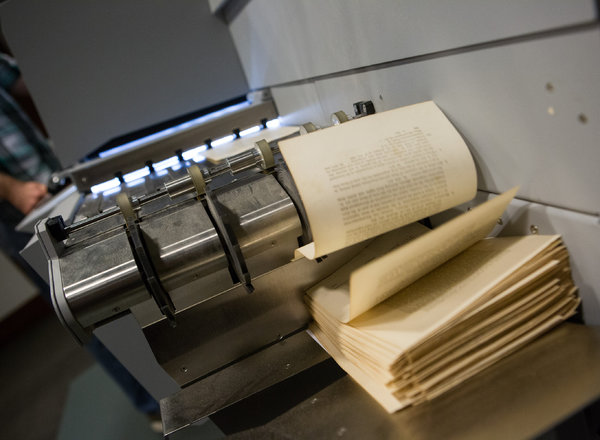
The Harvard law library contains nearly every state, federal, territorial and tribal judicial decision since colonial times — a priceless potential resource for everyone from legal scholars to defense lawyers trying to challenge a criminal conviction. The library has announced that they are slicing off the spines of all but their rarest books in a monumental digital effort to generate one of the largest searchable databases.
Harvard is going to offer the instant retrieval of over 40 million pages of vital records completely for free. “Improving access to justice is a priority,” said Martha Minow, dean of Harvard Law School, explaining why Harvard has embarked on the project. “We feel an obligation and an opportunity here to open up our resources to the public.”
Digitizing these materials will make them broadly accessible to nonprofits, academics, practitioners, researchers, and law students—anyone with a smartphone or Internet connection. The material will be added to—and will be searchable through—Ravel’s platform, which uses data science, machine learning, and visualization to help people sift quickly through millions of court opinions.
Legal groups spend anywhere from thousands of dollars a year, for a small office, to millions, for a giant firm, using commercial services like Westlaw and LexisNexis to find cases and trace doctrinal strands.
The full collection of nationwide case law is expected to be digitized and searchable for free by mid-2017, and will be available through www.ravellaw.com.
Michael Kozlowski is the editor-in-chief at Good e-Reader and has written about audiobooks and e-readers for the past fifteen years. Newspapers and websites such as the CBC, CNET, Engadget, Huffington Post and the New York Times have picked up his articles. He Lives in Vancouver, British Columbia, Canada.